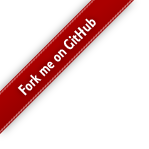Simulating soft matter across scales
Date:
October 7, 2024 – October 11, 2024
Location:
ICP, University of Stuttgart (Germany)
Register:
https://www.cecam.org/workshop-detail/1324
Schedule: PDF
Course description
Scientific content
This school will teach coarse-grained and lattice-based simulations methods suitable for modeling soft matter systems at mesoscopic length and time scales. We will explore topics such as simulating coarse-grained ionic liquids in electrolytic capacitors to measure differential capacitance, simulating coarse-grained liquids with machine-learned effective potentials to match the properties of models with atomistic resolution, polymer diffusion in an implicit solvent, particle coupling to continuum hydrodynamic fields, and diffusion-advection-reaction solvers for electrokinetics and catalysis.
Lectures will provide an introduction to the physics and model building of these systems as well as an overview of the necessary simulation algorithms. During the afternoon, participants will practice running their own simulations in tutored hands-on sessions using the software ESPResSo[1] and waLBerla[3]. Many of the lectures and hands-on sessions will be taught by developers of the software. Hence, the school will also provide a platform for discussion between developers and users about the future of the software used in the hands-on sessions. Moreover, users can get advice on their specific simulation projects. Time will also be dedicated to research talks, which illustrate how the simulation models and software are applied, and which provide further background on soft matter at different length and time scales.
Poster session
As an on-site participant, you have the opportunity to bring a poster to introduce your work to your peers. We welcome abstract submissions on both planned and ongoing research projects, done with or without ESPResSo/waLBerla, as long as they fit to the general themes of this event. The abstract should contain at most 400 words without counting the bibliography, and not have been published elsewhere.
Everyone bringing a poster is invited to present it in a 1 minute lightning talk during the poster session. The poster boards will remain up for the entire duration of the school. Accepted contributions will be published in a book of abstracts under a permissive open-source license on Zenodo.
Invited speakers
- Timm Krüger, University of Edinburgh (United Kingdom)
- Tristan Bereau, University Heidelberg (Germany)
- Christine Peter, University of Konstanz (Germany)
- Frederik Hennig, University of Erlangen–Nuremberg (Germany)
- Matej Praprotnik, National Institute of Chemistry (Slovenia)
- Pablo M. Blanco, Norwegian University of Science and Technology (Norway)
Teaching material
Hands-on sessions
We use interactive Jupyter notebooks to teach concrete applications of the simulation methods introduced in the lectures. These notebooks outline physical systems relevant to soft matter physics and sketch simulation scripts written for the ESPResSo and waLBerla packages using the Python language. A few parts of these scripts are hidden and need to be completed by participants, with the help of the ESPResSo and waLBerla user guides and the tutors.
These exercises can also be carried out in self-study after the school via the online platforms Binder and Gitpod, and all exercises have hidden solutions that can be revealed at any time.
Software
In this school, participants learn to conduct coarse-grained and lattice-based simulations suitable for modeling soft matter systems using the software ESPResSo and waLBerla. ESPResSo is an open-source particle-based simulation package with a focus on coarse-grained molecular dynamics models. In addition, it offers a wide range of schemes for solving electrostatics, magnetostatics, hydrodynamics and electrokinetics, as well as algorithms for active matter and chemical reactions[2]. These methods can be combined to simulate different scales and recover emergent material properties at macroscopic scales.
ESPResSo consists of an MPI-parallelized simulation core written in C++ and a scripting interface in Python which integrates well with scientific Python packages, such as numpy, pyMBE[5], pyOIF[6], ZnDraw[7] and SwarmRL[8]. ESPResSo relies on waLBerla, a high performance lattice-Boltzmann library, for hydrodynamics and other lattice-based schemes for electrokinetics and related fields[3]. Custom waLBerla kernels can be rapidly prototyped in symbolic form in Python and automatically converted to highly optimized, performance-portable code for CPUs and GPUs[4].
Event organization
This school is planned as an on-site event. We don’t charge a participation fee.
Hands-on sessions will be tutored by experienced ESPResSo/waLBerla users and developers. There will be additional opportunities for scientific exchange during the event: scientific speed dating and BBQ on Monday, poster session on Tuesday, city tour and conference dinner on Thursday.
A preliminary schedule is available as a PDF file in the Documents tab. A more detailed version will be made available in the summer, once all speakers have confirmed their time slots. The school starts on Monday at 9am and ends on Friday at 1pm.
References
[1] R. Weeber, J. Grad, D. Beyer, P. Blanco, P. Kreissl, A. Reinauer, I. Tischler, P. Košovan, C. Holm, ESPResSo, a Versatile Open-Source Software Package for Simulating Soft Matter Systems, 2023
[2] F. Weik, R. Weeber, K. Szuttor, K. Breitsprecher, J. de Graaf, M. Kuron, J. Landsgesell, H. Menke, D. Sean, C. Holm, Eur. Phys. J. Spec. Top., 227, 1789-1816 (2019)
[3] M. Bauer, S. Eibl, C. Godenschwager, N. Kohl, M. Kuron, C. Rettinger, F. Schornbaum, C. Schwarzmeier, D. Thönnes, H. Köstler, U. Rüde, Computers & Mathematics with Applications, 81, 478-501 (2021)
[4] M. Bauer, J. Hötzer, D. Ernst, J. Hammer, M. Seiz, H. Hierl, J. Hönig, H. Köstler, G. Wellein, B. Nestler, U. Rüde, Code generation for massively parallel phase-field simulations, 2019
[5] D. Beyer, P. B. Torres, S. P. Pineda, C. F. Narambuena, J.-N. Grad, P. Košovan and P. M. Blanco, 2024, arXiv:2401.14954 [cond-mat.soft]
[6] I. Jančigová, K. Kovalčíková, R. Weeber, I. Cimrák, PLoS. Comput. Biol., 16, e1008249 (2020)
[7] R. Elijošius, F. Zills, I. Batatia, S. W. Norwood, D. P. Kovács, C. Holm and G. Csányi, 2024, arXiv:2402.08708 [physics.chem-ph]
[8] S. Tovey, C. Lohrmann, T. Merkt, D. Zimmer, K. Nikolaou, S. Koppenhöfer, A. Bushmakina, J. Scheunemann, C. Holm, 2024, arXiv:2404.16388 [cs.RO]


